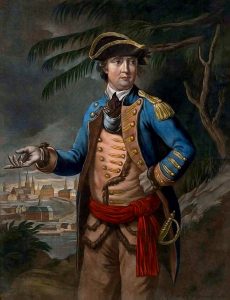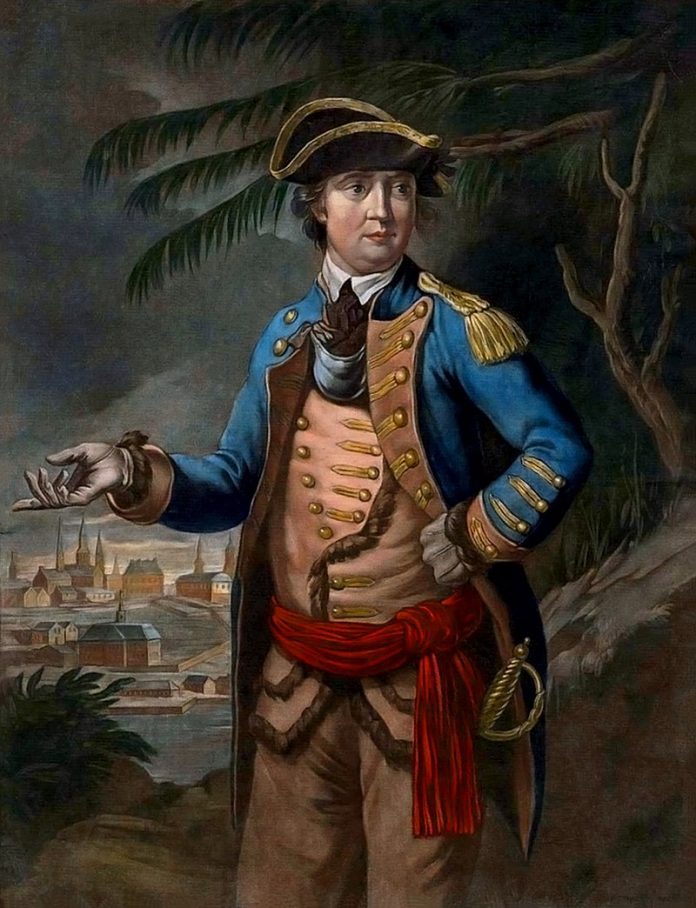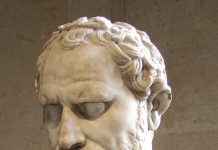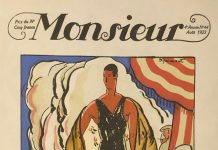The well-worn phrase “history repeats itself” is manifested over and over in David Rothkopf’s book, TRAITOR. Time and again the country has been riven with political polarization, deep and accelerating inequality, vitriolic public discourse, a fraying social fabric, public & private self-centredness. Yes, America has been there before.
It will come as a revelation to most readers how these recurrent cycles of corruption and self-indulgence permeate our history and how the current era of Trumpism mirrors the worst of the worst of these patently immoral and corrupt behaviours.
Most of the book is devoted to these past cycles, not the current miasma of treason which oozes out of the White House and the post-democratic members of Congress (formerly known as Republicans but now nothing less than black-shirts whose only allegiance is to their Fuhrer).
Even though the book’s subtitle includes Benedict Arnold, his betrayal occupies only 6 pages. The author rightly weighs the degrees of treason he presents to us, concluding, in the case of Arnold, that “in terms of damage he actually inflicted, the impact was not on a par with that of the leaders of the Confederacy,” or the current criminal occupant of the White House.
In the early years of the country, Rothkopf levels his most strenuous accusations against Aaron Burr and a figure who is known only to ardent historians, James Wilkinson. “The plots of Burr and Wilkinson – to actually break up the United States – were the most serious high-level efforts until the Civil War. Having said all that, Burr’s plot did not advance very far, nor did Wilkinson’s various efforts on behalf of the Spanish.” Rothkopf fingers Wilkinson, above Burr or Arnold, as “a more committed traitor.”
This era also leads the author to briefly explore the roots of what technically constitutes treason, which according to the Constitution requires two witnesses to overt acts of levying war against the U.S. or in giving Aid and Comfort or adhering to a foreign enemy. “The roots of the narrow provisions are in English law dating back to the year 1350.” It was actually 1351, and that Act of Parliament is still in force 669 years later.
The author does appear to stray from reality in his account of a 1795 treaty negotiated between Britain and America under the presidency of Washington. Several times he mentions Republicans, as in the “Republican-controlled House”, or a “Republican senator.” As even beginning students of history know, the Republican party was not founded until 1854, with Lincoln being their first president.
One area the author touches on but does not explore in depth is why the United States has been so reluctant to meet out the ultimate penalty for treason: death. The Civil War only saw two men hanged for treason. He attributes the pardoning of the leaders of the Confederacy to “the deep roots in our history of the philosophical reasons they believed they had the right to separate themselves from the United States. Further, there was a sense that while these men were traitors to the United States, they were acting out of a different sort of loyalty, but one that was nonetheless understandable in a way that cleaving to a foreign power would not be, could not be.” A fine encapsulation, but a matter of such great moment in our current crisis that merited further discussion by Rothkopf. Does the blatant attempt to overthrow democracy itself merit the death penalty? One could argue that even a murder does not rise as far as that in deserving death. Perhaps Rothkopf inadvertently tips his hand when he writes “One 2018 poll of two hundred top political scientists rated Trump dead last among all presidents.” Which brings us to DT (Dirty Traitor), who the author rightly labels as “the most corrupt, despicable, incompetent, disloyal president in U.S. History.”
Trump alone has been able to take past malfeasance and consolidate them into his own cadre of narcissistic behaviour, magnifying them onto his own amoral persona.
Trump has done what no other politician has been able to do – amalgamate these corrupt and immoral transgressions of the past into his own sphere of behaviour and make them seem like the norm. Thus betraying his country and its people. As the author writes, “None of those who, in the entire course of our history, have been accused of treason, espionage, or other forms of extreme disloyalty to the United States rival Trump in a range of key respects.” Among these, Rothkopf lists “none has been so senior in our government; none have benefited so greatly from his own treachery; none has ever done anything to reward a foreign master to the degree Trump has benefited his Russian partners.”
In a CNN interview on Oct 26, 2020, Rothkopf said that “With Donald Trump we have to ask ourselves something we have not had to ask with any president: has he upheld his oath of office? If you look at his presidency from beginning to end it is one betrayal after another.”
Now that DT is doing everything to overturn the election (which surely ranks as a treasonous act), one must ask what to do about it when the bum is kicked out of office on Jan. 20, 2021. There is a great debate now on this very issue. Rothkopf made it clear even before the election what the answer must be. The people and the Justice Department “have to prove that if you obstruct justice, if you place yourself above the law, you are going to be investigated and held accountable. If we don’t do that, then we’re going to send a message to future generations that presidents are above the law. The laws need to be followed by everybody. If we ignore it we open the door to further abuse.”
In Trump’s betrayal, the author writes in this book, “History is the highest court. Its jurisdiction knows no boundaries. Its final verdict cannot be appealed.”
While this is a finely researched book, it notably lacks any references to original source material, thus mitigating its value as a historical work. The author is concise and to the point, without being wordy. It is a good read for anyone who possesses a sense of history.
In 1993, Rothkopf joined the Clinton Administration as Deputy Under Secretary of Commerce for International Trade Policy and Development. He later served as Acting Under Secretary of Commerce for International Trade. Currently he is a visiting scholar at the Carnegie Endowment for International Peace, and a member of the Council on Foreign Relations.
TRAITOR: A history of American betrayal from Benedict Arnold to Donald Trump. Published by Thomas Dunne Books.
Review written by Drs. M. Emanuele & C. Cunningham














